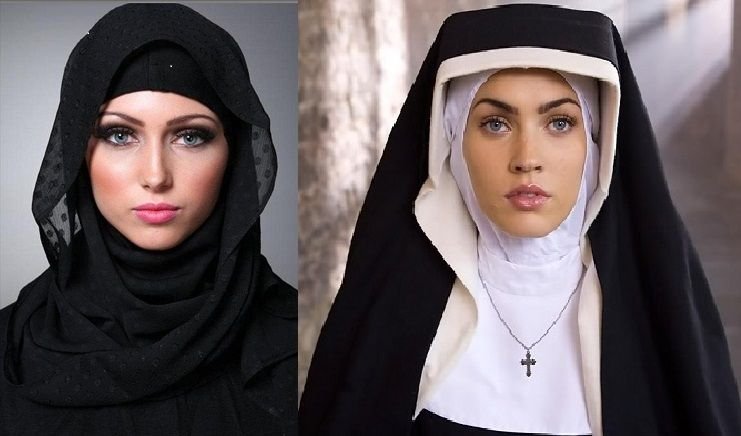
I would like to start this off with something I read earlier on, “Any talk of modesty, must begin with the heart, not the hemline.”
Modesty is an important aspect of religion. Why are most Muslim women and nuns found in veils? It is because it is part of faith. Islamic scholars believe it is the very thing that draws a line between animals and humans. As animals follow their instincts without feeling any shame in their actions. Not being covered is a very primal instinct and was followed by humans centuries ago. The word "modesty" comes from the Latin root modestus which means "keeping within measure"
Mostly people just blindly follow in footsteps of others these days or whatever is trending on the internet, not even thinking if what they’re doing is right or wrong. Shorter tops and ripped jeans found in malls seem to have sky rocketing prices. It’s the trend. Everybody adopts it. But what we need to remember are our moral values and the lines we must not cross. Modesty has a lot of benefits. Such as when everybody covers uniformly, everyone is equal, no one is richer than the other or poorer than the other. There is equality.
One must not only be modest in their appearance but also in their conduct, in their everyday interactions while talking to others. For instance keeping our voice low when talking to others. Containing our anger so as not to expose the shameful ego within. Not being frank with every other person we meet. We are supposed to be modest in our spending. Humble while discussing our lifestyle/ possessions. In Islam, modesty is so important that one cannot pray unless modestly covered.
To stress the importance of modesty an incident from life of Moses and Zaphorah is followed which greatly impacted me when I read it elsewhere. The story goes like,
“After waiting for a long time in the queue, being only two females among all the males, someone finally helped them, and they were able to take their flock of sheep and goats home. Their father was old, and they had no brother to do their outside chores. Being one of the most onerous of tasks, drawing water from the well in order to water one’s livestock was one performed by men; a lucky day for them to come home early with the drove freshly watered. The father was surprised about their early return, and when he inquired into the occurrence, his daughters told him that a man who seemed a traveler had helped them.
The father asked one of them to seek the man out and invite him home. Upon returning to the well, the lady approached him shyly. When she was in earshot, she gave him her father’s invitation so that he might recompense him for his help. He kept his gaze low to the ground as he replied to her, saying that he had done it for the sake of God alone, and required no compensation. However, realizing that this was God sent help, he accepted the invitation. As she was walking ahead of him, the wind blew her dress, which revealed part of her lower legs, so he asked her to walk behind him and point out the way he should follow when he reached a fork in the foot path.
Once they arrived at the house, the father presented him with a meal and asked where he was from. The man told him that he was a fugitive from Egypt. The daughter who had brought him home whispered to her father: “O Father, hire him, because the best of the workers is one who is strong and trustworthy.”
He asked her: “How do you know he is strong?”
She said: “He lifted the stone lid of the well that cannot be removed except by many together.”
He asked her: “How do you know that he is trustworthy?”
She said: “He asked me to walk behind him so that he couldn’t see me as I walked, and when I conversed with him, he kept his gaze low with shyness and respect.”
This was Prophet Moses, may the mercy and blessings of God be upon him, who had run away from Egypt after killing someone by mistake, and the father of the girls was a God fearing man from the tribes of Midian; a man who was sonless, but had had these two daughters.
The verse in the Quran that tells us this story stresses upon the manner of her approaching Moses:
“So one of the two (daughters) came to him walking modestly…” (Quran 28:25)
Both the way Zaphorah approached Moses and his care about not seeing more of her than was needful at the time describe acute senses of propriety. Neither had a chaperone, nor could people see what they did, yet both conducted themselves with the utmost decorum. This was done out of fear of the One who sees everything. The outcome was that when her father proposed to Moses that he marry one of his daughters, Moses considered them a suitable marriage prospect. He and his daughters also saw in him all the virtues a man needs as a mate for a woman to consent to his guidance and nurture through life. Moses accepted, and also ten years hire as a shepherd.”
How beautifully this excerpt highlights modesty and the need to adapt it! I only hope that we are all able to adapt it this perfectly too.